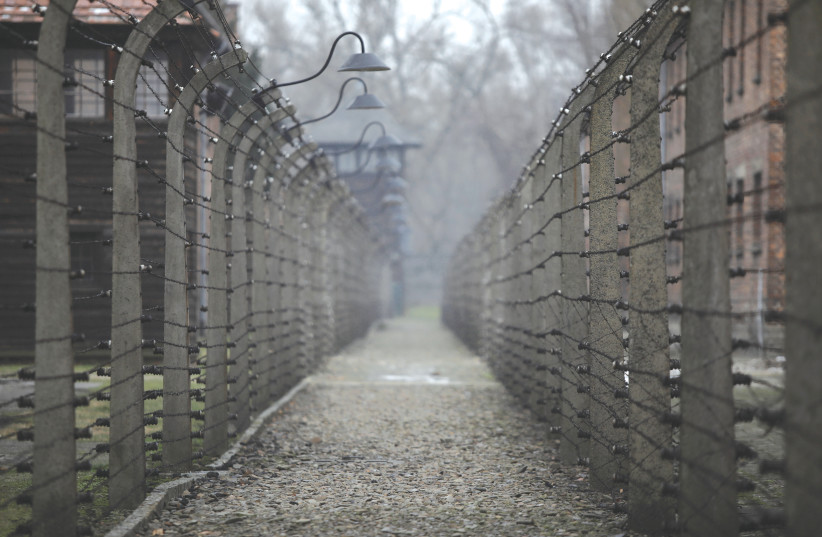Mel Mermelstein, a Holocaust survivor who won a court case against a group of Holocaust deniers, died on Friday at his home in Long Beach, California, aged 95, according to a report in The New York Times.
The report said he had died of complications from COVID-19, citing Mermelstein's daughter Edie.
In 1944, when Mermelstein was 17, his parents, two sisters and brother were deported with him from their Hungarian town to Auschwitz. At the concentration camp, his mother and sisters and were murdered in the gas chambers and his father and brother died from other causes, The Washington Post reported.
Before his father died, Mermelstein promised him that he would tell what had happened there.
After World War II, Mermelstein moved to the United States, where, in 1979, a group called the Institute for Historical Review offered $50,000 to anyone who could prove that the Nazis had used gas chambers to murder Jews during the war.

The organization sent entry forms to Holocaust survivors who had spoken publicly about their experiences, including Mermelstein. According to the Post, the letter he received read: "If we do not hear from you, we will be obliged to draw our own conclusions and publicize this fact to the mass media."
Although Jewish organizations, including the Simon Wiesenthal Center and the Anti-Defamation League, insisted that Mermelstein ignore the letter in order to avoid bringing more attention to the Holocaust-denying organization, he was determined to respond to the challenge:
"I watched my mother and sisters being led to the gas chambers, and they tell me it was a hoax. They are hate-mongers, Jew-haters. I’m going to get them if I have to spend the rest of my life doing it," he said, according to the Post.
For his entry, Mermelstein sent a copy of his memoir describing his experience during the Holocaust, titled "Bread Alone: The Story of A-4685," a reference to the number tattooed on his arm, according to the Times. However, when the Institute did not pay Mermelstein the $50,000, he sued the group for the money, in addition to $17 million in damages for "injurious denial of established fact," as well as libel, breach of contract and emotional distress, the Post reported.
In a pretrial ruling, a judge said that the fact that Jews were exterminated in gas chambers at Auschwitz is "not reasonably subject to dispute," the Times report said. Later, another judge ordered the institute and other defendants to pay Mermelstein the $50,000 in prize money and an additional $40,000 in damages and to write a letter apologizing to the plaintiff and other Holocaust survivors.
